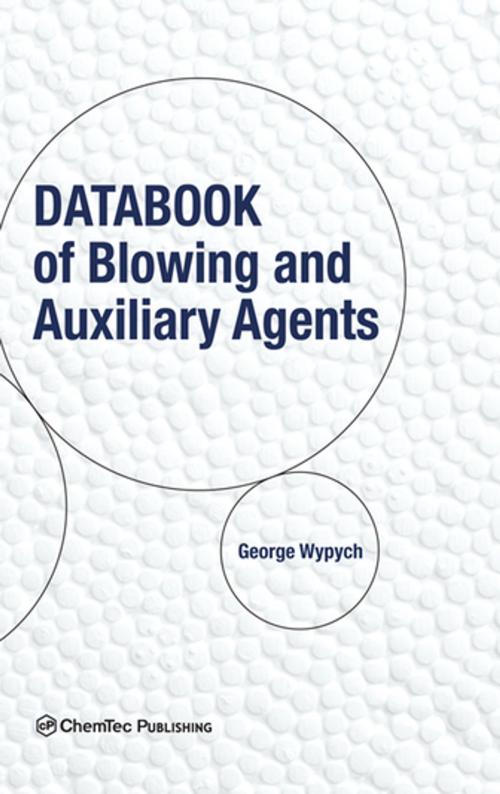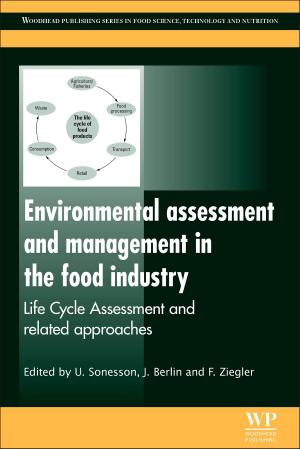Databook of Blowing and Auxiliary Agents
Nonfiction, Science & Nature, Technology, Textiles & Polymers, Science, Chemistry, Technical & Industrial| Author: | George Wypych | ISBN: | 9781927885208 |
| Publisher: | Elsevier Science | Publication: | January 12, 2017 |
| Imprint: | ChemTec Publishing | Language: | English |
| Author: | George Wypych |
| ISBN: | 9781927885208 |
| Publisher: | Elsevier Science |
| Publication: | January 12, 2017 |
| Imprint: | ChemTec Publishing |
| Language: | English |
Databook of Blowing and Auxiliary Agents examines the chemical compounds used in the manufacture of blowing and auxiliary agents, and commercial products, with a range of data sources utilized. Foamed polymers have many beneficial properties, including lower density, high heat and sound insulation, and shock absorbency. Foamed plastic parts are now a ubiquitous part of everyday life—from food packaging to seat cushions.
As the application of foamed polymers expands and diversifies, a variety of foaming techniques and equipment are available to produce a diverse range of products. The methods of foaming are generally established, but very little is known about the composition of materials to be processed and additives to enhance foam products and make foam production more economical.
Over 100 different data fields are provided, from general information such as molecular structure and formula, to physical properties, health and safety information, ecological properties, and recommendations regarding appropriate use and performance of each agent. This databook is an essential resource for engineers, technicians, and materials scientists who need to specify blowing or auxiliary agents. It provides trustworthy and up-to-date data applicable to a range of industries such as construction, automotive, food packaging, and more.
- Enables plastics practitioners to more efficiently select the correct foaming or blowing agent for a given application
- Includes 100 data fields for each agent, including physical properties, health and safety information, ecological properties, and specific usage recommendations
- Contains data on the most important agents currently in use—both commercial products and the chemical compounds used for manufacture of the agents
Databook of Blowing and Auxiliary Agents examines the chemical compounds used in the manufacture of blowing and auxiliary agents, and commercial products, with a range of data sources utilized. Foamed polymers have many beneficial properties, including lower density, high heat and sound insulation, and shock absorbency. Foamed plastic parts are now a ubiquitous part of everyday life—from food packaging to seat cushions.
As the application of foamed polymers expands and diversifies, a variety of foaming techniques and equipment are available to produce a diverse range of products. The methods of foaming are generally established, but very little is known about the composition of materials to be processed and additives to enhance foam products and make foam production more economical.
Over 100 different data fields are provided, from general information such as molecular structure and formula, to physical properties, health and safety information, ecological properties, and recommendations regarding appropriate use and performance of each agent. This databook is an essential resource for engineers, technicians, and materials scientists who need to specify blowing or auxiliary agents. It provides trustworthy and up-to-date data applicable to a range of industries such as construction, automotive, food packaging, and more.
- Enables plastics practitioners to more efficiently select the correct foaming or blowing agent for a given application
- Includes 100 data fields for each agent, including physical properties, health and safety information, ecological properties, and specific usage recommendations
- Contains data on the most important agents currently in use—both commercial products and the chemical compounds used for manufacture of the agents















